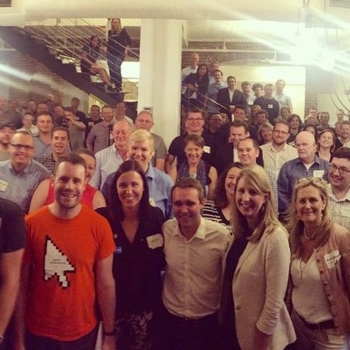A View From Inside The World's First PolicyHack
Posted by Alex Galin 20 October 2015 @ 2:53pm

There was a motley crowd of suits, jeans, and cameras loitering outside a CBD office building at 7:50am on Saturday. All keen participants in the world’s first PolicyHack, put together with impressive efficiency by startup accelerator BlueChilli, the office of the Assistant Minister for Innovation Wyatt Roy, and lobby group StartupAUS.
PolicyHack brought together 100 representatives of the Australian start-up community (from every state and territory and including entrepreneurs, VCs, and CEOs) and 50 public sector employees. The agenda was ambitious – apply a hackathon approach to policymaking.
The idea of a hackathon is to start with a problem and end up with a working prototype
PolicyHack was a start of change in government approach to entrepreneurship and innovation
It felt like we all wholeheartedly, honestly believe(d) that change is in the air for innovation; that this PolicyHack really would be the start of something.
I was a part of a group looking at ways that we could promote international collaboration and learning in the Australian startup community. Our MVP was the creation of landing pads in hot-spots around the world (e.g. San Francisco, Beijing) to give Australian entrepreneurs a place to land when they arrive. Many countries already do this, and it is having an impact on the success rates of their entrepreneurs. The cost was estimated at $450k per location per year, sourced from a combination of government support, corporate sponsorship, and ‘user-pays’ revenue.
We had so many ideas, but too little time…
It was a productive experiment in policymaking
I wonder how valuable the outcomes of our collective thought will be for policymakers – that is, those that are aware of government funding constraints and the practicalities and politics of partisanship and multiple government departments... constraints about which we are (blissfully) unaware.
The start of an agile approach to policymaking
Considering the litany of legacy policies constraining innovation and entrepreneurship, this would be refreshing. More – policymaking is a process that entrepreneurs should be continuously contributing to in a forums that yield fresh and innovative ideas.
For that, a PolicyHack was a perfect fit. Combined with the goodwill generated, it was the best start we could have hoped for.
Let’s hope it’s a herald of what’s yet to come.